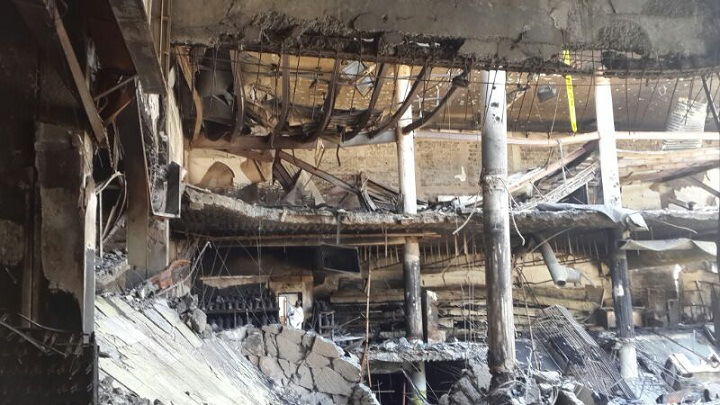Mohamed Harkat, an asylum-seeker from Algeria who came to Canada in the 1990s, is back in the news as the Supreme Court began to hear his case last week. Accused of being a sleeper agent for al-Qaeda, Harkat was detained following the 9/11 terrorist attacks in New York and Washington under the controversial national security-certificate system, but later released and forced to wear a tracking bracelet.

The Canadian Security Intelligence Service alleges Harkat ran a guesthouse in Pakistan that channelled foreign fighters from Chechnya into Afghanistan and that he had maintained regular communications with key Al-Qaeda figures. Harkat continues to deny any links to terrorism.
For the record, Pakistan and Afghanistan are not key sites for religious pilgrims of the Muslim faith. Just why would someone fleeing persecution in northern Africa travel and stay in Pakistan, close to the border with Afghanistan, is a legitimate question. From the 1980s up until present day, both countries have become interlinked as safe havens for religious extremists who have no qualms in using terrorism to advance their religious objectives. The situation in Pakistan in particular has worsened in the past decade.
As the Harakat case will unfold, no doubt there are many Canadians who will dismiss the possibility that some of our fellow citizens can and do travel to conflict zones to fight a “religious war.” In other words, many will scoff at the idea that Jihadists are living among us.
This is unfortunate because too many troubling incidents have transpired right here and abroad recently, which should shake us out of our collective slumber.
- Posters promoting ‘Steal From Loblaws Day’ are circulating. How did we get here?
- Video shows Ontario police sharing Trudeau’s location with protester, investigation launched
- Canadian food banks are on the brink: ‘This is not a sustainable situation’
- Solar eclipse eye damage: More than 160 cases reported in Ontario, Quebec
Consider, for example, last month’s attack against the Westgate shopping mall in Nairobi, Kenya, by members of the infamous Somali extremist group al-Shabaab, which resulted in the deaths of many civilians. Not only did two Canadians die at the hands of this group, but we learned from al-Shabaab directly (who live tweeted the attack) that many of the attackers were Western citizens, and that one of them was possibly a Canadian .
Earlier this year the world was captivated by scenes of horror in southern Algeria when a group of extremists attacked a gas plant in which over 800 people were taken hostage. Close to forty foreigners lost their lives. We were soon to learn from the Algerian government that two Canadians, Ali Medlej and Xristos Katsiroubas from London Ontario, played a lead role in this terrorist attack and that both had died as the Algerian army tried to end the siege.
Lastly, we now also have information that several Canadians have traveled to Syria to wage Jihad. A few weeks ago Ali Mohamed Dirie, a Canadian of Somali ancestry, died there. It is important to note that he was a convicted member of the Toronto 18, which had planned to bomb the Toronto Stock Exchange and storm the Canadian Parliament and behead Prime Minister Stephen Harper. We also learned that an Acadian named Damian Clairmont from the Maritimes, grew up in Alberta and converted to Islam a few years ago is also now in Syria fighting alongside Al-Qaeda.
Call it a hunch but I doubt both these fellows and their brothers-in-arms are following the Geneva Conventions, thereby adhering to the humanitarian laws of war.
As Harkat’s case is reviewed by the highest court in the land, we should not lose sight of recent examples that demonstrate Canada might just have a Jihad problem.




Comments